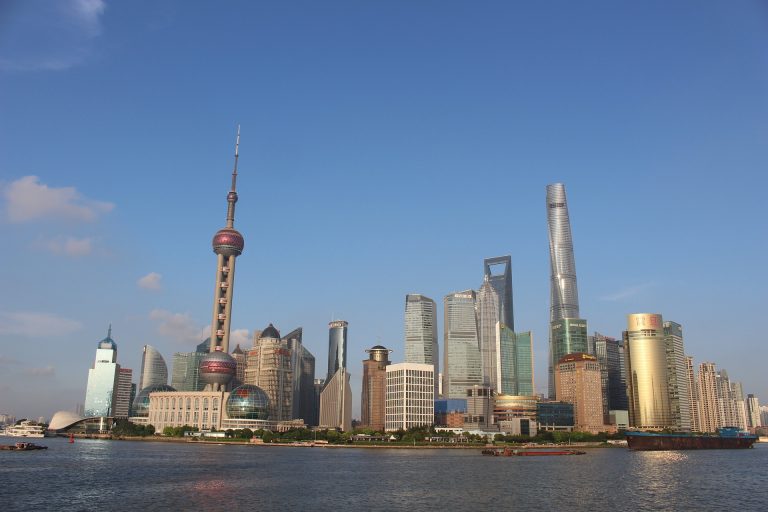On December 22, 2020, the China Securities Regulatory Commission (CSRC) held a meeting and discussed the topic of encouraging Chinese citizens to invest their savings in capital markets. This is the second time within 11 months this topic has been raised among the group. Coaxing the substantial pool of Chinese householders’ savings back into the Chinese economy has been brought up as the country has been dealt a blow from U.S. regulators and Congress enacting rules that greatly affect the market capitalization of Chinese firms.
In order to give Chinese citizens more investment options and expand the depth of the market for domestic investors, the CSRC announced it will, “accelerate the rollout of futures and options for natural gas, refined oil, and peanuts to help price discovery,” as reported by Reuters during a forum in Shenzhen on December 19, 2020.
According to a report by the International Monetary Fund (IMF) in 2018, China’s high savings rate is mostly driven by households. At 23 percent of GDP, China stands out with a savings rate that is 15 percent higher than the global average rate. As a result, Chinese households have collectively accumulated US$10 trillion in savings and are seen as a source of funds that could be used toward investment in domestic markets.
A previous push to increase the movement of individual Chinese household savings to capital markets was made a year ago in January 2020. The plan was not for individuals to invest directly into the markets, but for a movement of funds through purchases of indirect sources of investments, such as annuities and endowment insurance.

Corporate governance issues
The push to redirect China’s household savings to domestic investments comes after a series of measures taken by the U.S. against private Chinese companies listed on American exchanges. The measures were an answer to serious concerns regarding Chinese firms in receipt of American investor funds.
Success
You are now signed up for our newsletter
Success
Check your email to complete sign up
Issues with investment into Chinese companies are manifold. These companies are under scrutiny as a whole for their lack of proper audits performed on issued financial statements. Additionally, some of these firms are essentially a means for the development and modernization of China’s People’s Liberation Army (PLA).
Regardless of any links to China’s military, there is a cooling of interest in such investment in some circles in the U.S. at this time, but not in others. Notably, the Wall Street “friends” mentioned by professor Di Dongsheng, who is part of Xi Jinping’s “brain trust,” are continuing to pour American assets into China. As of October 2020, the number of funds invested in Chinese firms listed on American exchanges equaled roughly US$2.2 trillion.
Regulation is struggling to deal with the influx of funds into China for the protection of private investors. U.S. regulators’ pressure for Chinese firms to comply with U.S. audit standards has led Congress to issue a bill demanding these firms comply with audit rules or be delisted from American exchanges. This decreases the risk of investing for the American public.

Concurrent to the U.S. making an investment in American exchanges harder for Chinese companies, China has imposed restrictions on foreign investments. On December 19, 2020, China issued the Security Review Rules, which took effect on January 18, 2021. These rules outline the review of investments in Chinese companies to ensure that national security is not at risk if majority ownership occurs through foreign investment.
Market volatility presents high risks for Chinese investors
U.S. investors benefit from the delisting of Chinese firms that do not meet audit standards. However, Chinese domestic investors have no such protection and still bear the exposure of Chinese nontransparent financial reporting.
For domestic investors in China, improperly audited data makes investment based on sound corporate financial statements difficult if not impossible, and places these investors in the dicey situation of basing decisions upon rumors rather than upon sound evidence of a company’s financial health.
The culture of saving in China is, on the one hand, based on mores that look positively on saving, but are, on the other hand, tied deeply to mistrust of circumstances under the vagaries of communism. It is unlikely that the volatility or unmitigated high risk of Chinese investment will capture the hearts — or the US$10 trillion — of China’s droves of habitual savers.
Furthermore, the prospects of investing in the Chinese capital markets would prove riskier as evidenced by the Luckin Coffee scandal and the rise and fall of the peer-to-peer investing industry. In reviewing both of these disappointments, one finds a hint of what is plaguing the domestic Chinese investment industry: honesty is not highly prized under communism and this affects the institutional level of the industry.
The risks of investigating in such a climate are not only significant barriers to moving household savings to the capital markets, but these risks also point to the larger reason of what motivates such an extraordinary percentage of income to be tucked away in the first place: People do not feel stable in China under the Communist Party’s more than seven decades of rule. A more trustworthy culture permeating all levels of society is required for increased prosperity; to focus instead on the lure of investment products is putting the cart before the horse.
Follow us on Twitter or subscribe to our email list















